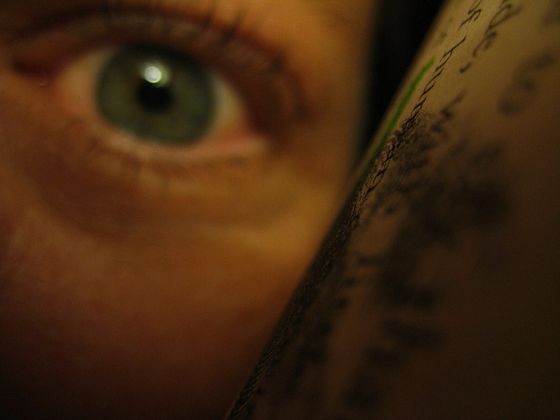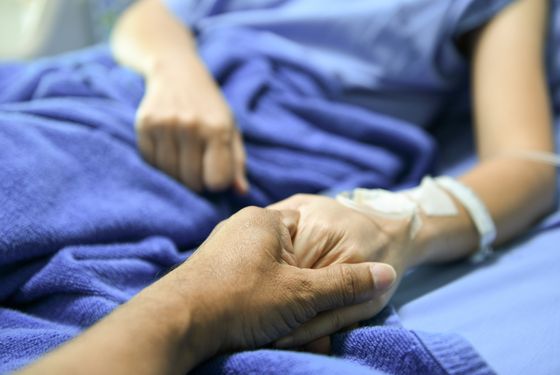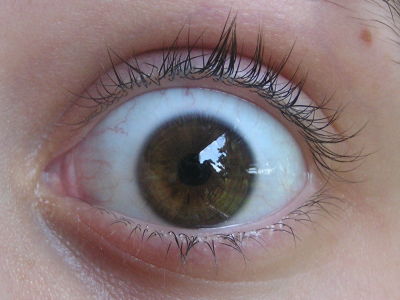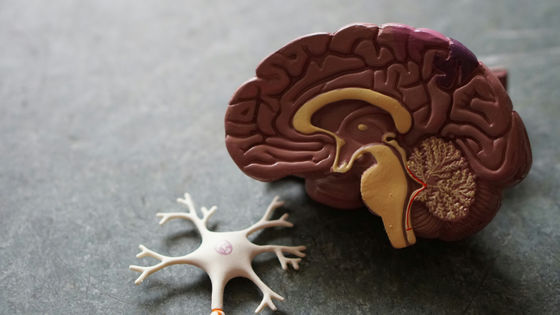One in 20 people may be waking up during surgery ant, even in cases where they just feel forgotten and feel unbearable pain

by romankosolapov
Anesthesia allows us to undergo surgery without feeling pain in the unconscious. However, it turned out that some of the people who had the operation woke up during the operation and had the experience that "I can not do anything in unbearable pain."
This is what it's like waking up during surgery | Mosaic
https://mosaicscience.com/story/anaesthesia-anesthesia-awake-awareness-surgery-operation-or-paralysed/
Donna Penner, 55, of Manitoba, Canada, is one of the patients who regained consciousness at the end of surgery. "When I was 45 years old, when I was working in the accounting department of a local shipping company, when I was attacked by a severe menstruation and consulted with my primary care physician, I decided to do surgery to find the cause. It was supposed to be a very easy operation, but I woke up when the surgeon cut my abdomen, but I couldn't tell anyone because the anesthesia was working, it seemed like I was frozen. "I had to be prepared for death," he said, "while I was sleeping on the operating table, I continued to have surgery."
Even ten years after the operation, Penner continues to suffer nightmares every night, and he has had to quit his job. Benner's example is extreme, but recent surveys have shown that about 5% of the population may be awake during surgery. However, even if regaining consciousness during surgery, most people can not remember what happened after the effect of anesthesia. "The problem is serious given the frequent use of general anesthesia," said Peter Odore, who works at St. George's Hospital in London. Some people in the world are still awake during surgery It may be. "
In the long history, the mechanisms by which anesthesia works are often covered in mystery. Since the Hippocratic era, doctors have been searching for ways to relieve the pain of patients being treated. Doctors used alcohol, opiates, and even venoms collected from ginseng, but although they are somewhat effective as sedatives, most patients do not escape torture-like pain It was
In the 1840s, scientists discovered sedative gases. William Morton, a dentist in Boston, focused on diethyl ether and held a public demonstration in 1846 at the Massachusetts General Hospital. The demonstration showed the patient's appearance that "I can talk, but I can not make rational thinking and I hardly feel pain." The news of this demo quickly spread to the medical community, and the age of anesthesia began. In addition, more effective anesthetics such as chloroform were discovered, and pain during surgery was even said to be a thing of the past.
Today's anesthesiologists choose from a wide variety of pain medications and drugs that decrease awareness, and choose the one that is best for surgery and the patient's condition. Most of the anesthesia is a so-called local anesthesia, which is used to remove sensations from parts of the body without losing consciousness. The local anesthesia spinal subarachnoid anesthesia and epidural anesthesia There are, both those acting on the spine, common use is surgery and childbirth, such as bladder and hip. In some cases, you may be given a sedative. This relaxes the patient and makes them sleepy, but not completely unconscious. In contrast to this, general anesthesia is intended to cause unconsciousness, and patients in the process of being anesthetized are in a coma and have no memories during that time.

by amenic181
According to Dr. Robert Sanders, an anesthesiologist at the University of Wisconsin-Madison, it is not known exactly why anesthetics weaken our consciousness. In the human brain, various brain chemicals called neurotransmitters activate and inhibit neuronal activity, in particular, extensive communication between different brain regions. It is believed that anesthetics inhibit the function of this neurochemical.
For example, general anesthetics called " propofol " have the effect of amplifying the effects of " GABA ", a neurotransmitter with inhibitory action. According to an experiment using electroencephalogram measurements conducted by Dr. Sanders, the propofol-treated subjects responded to external stimuli and were suppressed from acting to activate the entire brain. For this reason, Dr. Sanders has concluded that anesthesia is very likely to impede communication in the brain.
The situation is even more complicated in the medical field. For example, an anesthesiologist may need to use an anesthetic that induces temporary coma and another anesthetic that maintains it. In addition, neuromuscular blockers and muscle relaxation can be adjusted independently of the depth of anesthesia, the muscle relaxant necessary for surgery, taking into consideration many factors such as the patient's age and weight, and other drugs being taken. Agents may be used. Using a neuromuscular blocker to secure the airway in the throat can make it easier to insert a tube to give the patient oxygen and medication. Also, if the effect of anesthesia is to stop the muscles of the diaphragm, the patient may be fitted with a ventilator. General anesthesia with a neuromuscular blocking agent that has the effect of stopping even breathing prevents the patient from moving even the limbs or even the eyelids.
In most cases, anesthesia works surprisingly well. More than 170 years after Morton's public demonstrations, in 2019, anesthesiologists around the world have been waking up safely when they put millions of patients in coma annually. Anesthetics not only reduce the pain of the patient, but also enable surgery that is impossible without them.
However, as with other medicines, it can not be ruled out that there may be people whose constitution is not effective for anesthetics. If only general anesthetics are used to block pain sensations, it is possible to move the limbs to communicate and talk during surgery, but with neuromuscular blockers muscle If you are under general anesthesia in a relaxed state, you will not be able to do that either. And, unfortunately, to a very small extent, some people just can not move their body while undergoing surgery under general anesthesia and only consciousness returns.
It is highly probable that the above-mentioned Donna Penner's experience falls under this pattern. After being anesthetized when undergoing surgery, Penner woke up on the operating table, and at first thought that "the operation was over". But in fact, just before the surgery began, Penner's body was torn apart with a scalpel, regardless of his awareness. Although I was not able to shed tears or cry with pain, I moved desperately to move a little moving foot or tongue to convey awareness that I could say to my doctor or nurse, but unfortunately I let doctors know It was On the contrary, the doctor's tubers were removed by doctors who interpreted that the effect of anesthesia started to drop earlier than planned, and Penner, who was unable to breathe, prepared for death.

by submerged ~
Several projects are starting to work out that there are cases like Penner. For example, the University of Washington in the United States started collecting experience reports on anesthesia in North America in 2007. "The most serious of these reports is the case of waking up under anesthesia with a neuromuscular blocker," said Dr. Christopher Kent of the University of Washington. It is attacked by the fear of something. " The largest of these projects is a survey conducted by the Association of Anesthesiologists in the United Kingdom and Ireland on all public hospitals in the United Kingdom and Ireland. According to the results, only 1 out of 19,000 people did not take anesthesia. At the time, this report was favorably received. It is more likely that you can die during surgery than when you wake up during surgery, so the view that you can not afford to worry has prevailed.
However, Dr. Odore at St. George's Hospital has questioned the results of this study. "There is a blind spot that this survey relies on post-reporting by patients. The anesthetic itself has the effect of inhibiting memory consolidation, so if you wake up during surgery you may remember it later It may not be possible, "said Dr. Odore. To test this point, Dr. Sanders of the University of Wisconsin did an experiment called "isolated hands." This is a method that allows patients to move their hands for a certain period of time by wrapping a tube around one arm during induction of anesthesia to delay the effect of the anesthetic. As a result of the experiment, of the 260 patients surveyed, 4.6% showed that they were conscious and holding their hands. Also, it turned out that four out of ten patients who held hands were not only conscious but also felt pain. The findings suggest that patients are awake during surgery at a much higher probability than the studies conducted in the United Kingdom and Ireland.

by sarawutnirothon
Dr. Sanders said, "I'm doing a philosophical discussion with the trainees about this. Is it okay to say that if the patient doesn't remember, there is no problem?" As a result of this survey, Dr. Sanders conducted a questionnaire survey, and most people answered that "I do not want to wake up during surgery even if I have no memory," but a small number of people said "I do not mind if I have no memory." There was also.
It is a difficult argument to tell patients about the possibility of waking up during surgery. Given that most patients wake up from general anesthesia without suffering trauma, you may not want to explain in a way that would scare patients before surgery. In the worst case, surgery may be refused and treatment may not be possible. On the other hand, people who were attacked by the fear that they were dead in Washington University's experience report may have been able to avoid panic if they received an explanation in advance. . Mr. Penner, who has been awakened during anesthesia, remembers what he said about his doctor's and nurses' reactions when they talked to the hospital about their experiences. I kept silent for a long time without knowing what to do. "
According to the University of Washington Experience Report, 75% of those who answered that they woke up during the operation were not satisfied with the hospital response, and 51% said that anesthesiologists and surgeons did not understand their experience. You are Only 10% of the patients were apologized by the hospital, and 15% were referred to counseling. Pentner is working with a university in Canada to solve the problem by educating doctors about arousal during anesthesia. A better understanding of dealing with traumatized patients can help the health care provider recover.
But the ultimate goal is again to prevent the patient from waking up during surgery. "There may be a way to formulate an anesthetic that better blocks the patient's sense," Sanders said.
On the other hand, under general anesthesia, it is thought that signal transduction in the whole brain is lost, but it has also been found that specific areas including the auditory area continue to respond. In other words, there is also the possibility of encouraging and giving advice to patients who are unconscious. As the understanding of awakening during anesthesia deepens, there is also a movement to use this phenomenon in reverse.
Related Posts:
in Science, Posted by log1l_ks







